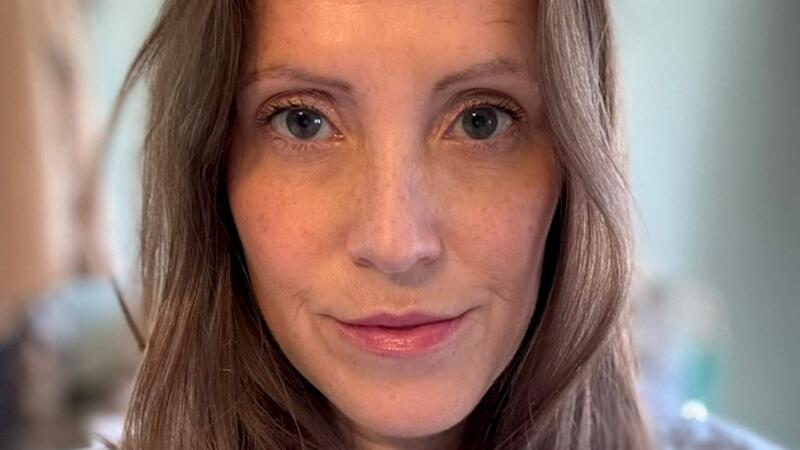You are viewing your 1 free article this month. Login to read more articles.
A celebrity crime spree
Covertly ghostwritten books from household names are crowding out professional talent.
Halloween may be over for another year but ghosts remain among us; not the spectral sort but a plethora of ghostwriters for the growing number of TV presenter/actor/dancer/influencers fuelling the celebrity crime-novel trend. The celebrity’s name may grace the cover, but their involvement can vary from writing the whole thing through to teaming up to co-write and share the credit with a highly successful crime writer; contributing plot ideas that are then penned by a ghostwriter; or merely lending their name for marketing purposes. Which of these is applicable to the book they’ve bought is very difficult for a reader to ascertain.
The celebrity crime market has boomed in the past few years, following on from the celebrity takeover of the children’s book market. It’s not hard to see the attraction from the publisher’s point of view. Celebrities have a ready-made legion of fans and can secure media coverage that’s fiendishly difficult for jobbing authors. For publishers, collaborating with a celebrity is regarded as a safer bet than a regular début. The publisher increases its chances of scoring a lucrative bestseller, while the celebrity gains an extra revenue stream and the thrill of seeing a book with their name on it. Win, win. Or is it? Crime authors have taken to social media in the past few weeks to express their concerns about celebrity ghostwritten books and their impact on professional authors’ livelihoods and opportunities.
Philippa East, a shortlistee for the CWA New Blood Award, wrote to the Society of Authors (SoA) to say a "lack of transparency about ghostwritten celebrity novels devalues the expertise, talent and work of professional authors when celebrity titles are preferred and prioritised". It’s a sentiment echoed by Marion Todd, author of the DI Clare Mackay series, who would like the SoA to lobby "for any co-authors/ghosts’ names to appear on the book cover".
Why is this important? East explains: "To pretend that a celebrity has written the book themselves (when they haven’t) seriously devalues what is an incredibly specialist and demanding profession, implying that ‘anyone can write a book’ and that there is no special talent, craft or labour required."
Is it deceitful to print a celebrity’s name on a book’s cover when it was penned by a ghostwriter (whose fee is very unlikely to equal the celebrity’s)? Sunday Times bestselling crime writer Harriet Tyce says yes. "Perhaps the reading public don’t care, but they should—they’re being lied to, and, in my opinion at least, the truth matters." A seasoned writer who has published in crime and other genres is of the same mind. She told me: "How could anyone regard that as honest practice? Crime and children’s books seem to attract more than their fair share of imposters, because there are more sales to steal."
But doesn’t the revenue brought in by celebrity books enable publishers to take a chance on new authors? Trevor Wood, winner of the CrimeFest Specsavers Crime Fiction Début Award, questions this theory, saying: "The idea that there’s some kind of trickle-down financial process that works in favour of other aspiring writers is frankly laughable." One publisher on social media commented on the discussion that celebrities are actually a higher risk with their larger advances and the time needed to spend on them.
Is it deceitful to print a celebrity’s name on a book’s cover when it was penned by a ghostwriter (whose fee is very unlikely to equal the celebrity’s)?
The authors I spoke to were quick to point out that the issue is about transparency and valuing the work, talent and expertise that goes into writing a novel, rather than singling out individual celebrities for criticism. They acknowledge there are celebrities, particularly those with a journalism or other writing background, who do write their own books, actively support both the profession and other writers, and help bring the crime genre to a wider audience.
Orlando Murrin is one such author. He was a highly successful food writer, with seven non-fiction books under his belt, before he turned to writing his début crime novel Knife Skills for Beginners. While he doesn’t regard himself as a celebrity, having made his name through being a food writer and chef rather than appearing on screen, he says: "Coming from a different profession probably did help me get a publishing deal, not because it would guarantee thousands of sales, but because my editor trusted I knew what I was talking about." Although he doesn’t have any problem with celebrities writing fiction, he can "completely understand writers feeling put out when celebrities snaffle huge book deals, while the rest of us starve in our garrets".
The dwindling income of all writers is a threat to the sustainability and diversity of the industry. Todd says: "With the current rush of celebrities writing crime fiction, I fear those of us who make our living from these books will be edged out. This is already noticeable in supermarkets with fewer slots for non-celebrity authors in favour of celebrity novels."
One author I spoke to went so far as to say they didn’t know why they bothered any more, "considering the stakes are so unequal with the constant announcements of celebrity crime fiction. It’s constant graft to stay in the profession, not least when you’re earning the minimum wage or below".
This issue worries East. She says: "The increasing number of (ghostwritten) celebrity titles devalues books and disrupts any sense of a level playing field, making it harder and harder for ordinary writers… to make a living or a career out of their writing work."
What the writers I spoke to want is greater parity in the profession, hoping that the conversation will lead to industry action. Wood sums this up: "If a celebrity really thinks they can write a book and genuinely wants it judged on its merits then why not try submitting it under a pseudonym and see if it gets picked up then? Now that I could respect."



















